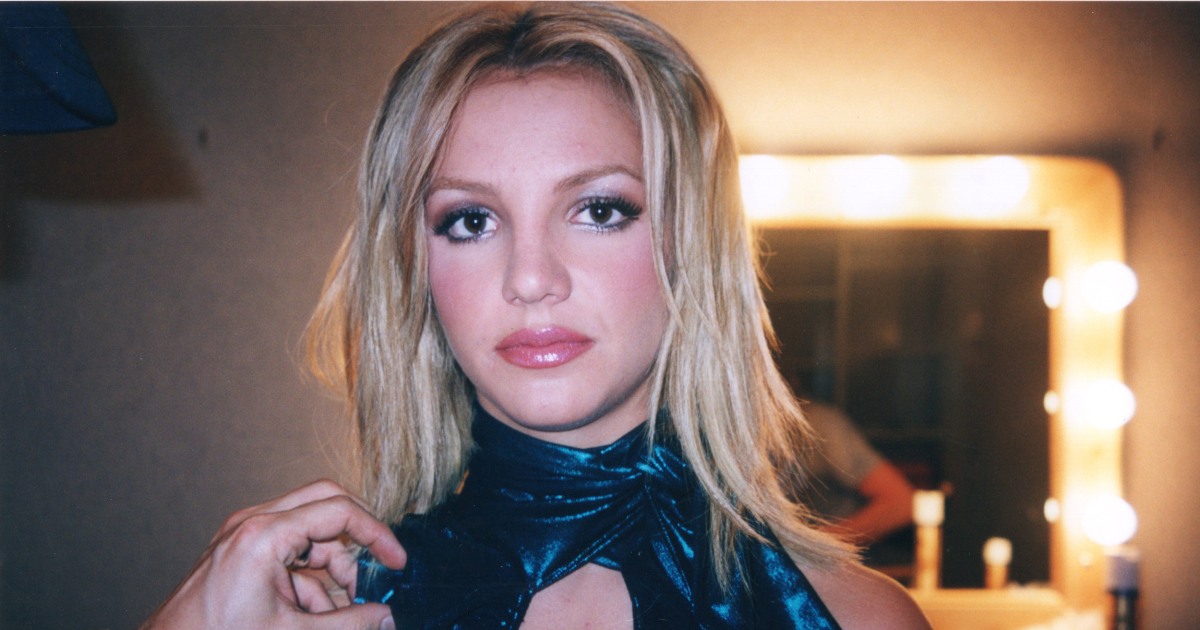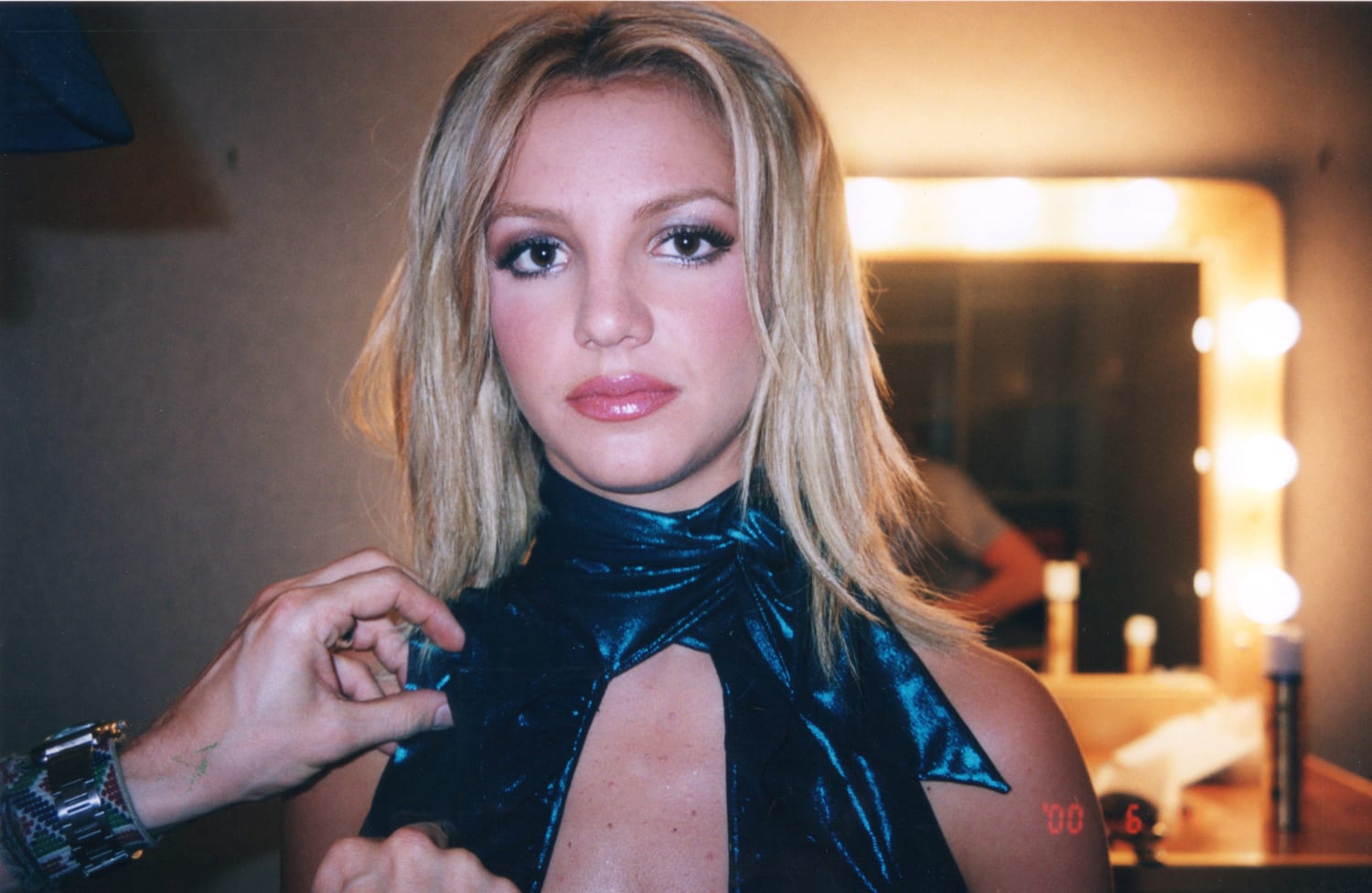
Since she was a teenager, Britney Spears, 39, has been told what her sexuality is supposed to be and what it should look like. She’s been vilified, questioned and shamed for embracing it, and someone in power once said Spears’ sexuality was so threatening she’d welcome “an opportunity to shoot” her.
There’s a group of people who relate to that.
Standing in front of the Los Angeles Superior Court last year, Kevin Wu, an activist in the #FreeBritney movement, spoke to the crowd with a megaphone, saying of Spears, “She gave me permission to be myself growing up as a gay boy in suburban Virginia, and Britney gave me the power to be who I am.”
The crowd — which gathered to protest the conservatorship Spears has been under since 2008 — clapped and nodded in agreement, their signs saying things like, “Justice for Britney,” “Britney Spears deserves her freedom,” and “Free Britney, bitch!”
This scene was featured in the opening sequence of the recently released Hulu and FX documentary “Framing Britney Spears,” produced by The New York Times and directed by queer filmmaker Samantha Stark, 38. The film is her first feature-length project.
“That’s in the first three minutes, and it is on purpose, because so many of the loudest voices in the #FreeBritney movement are queer voices,” Stark said of the scene, adding that she “absolutely” considers queerness when thinking about Spears and the movement to challenge the conservatorship.
“She can’t choose where she lives. She can’t sign a check. She can’t sign a contract. She can’t choose what to do with her money,” Stark said of Spears’ court-mandated arrangement, in which her father, James Spears, was placed in charge of her affairs. Though he’s now a co-conservator, his daughter has petitioned for his complete removal.
“I do think that’s why people have such a deep connection to her,” Stark said. “She’s still being told who she can be and what she can do, on an exponential level.” That holds some resonance for the LGBTQ community.
Spears has long been an advocate for the queer community, and she was awarded the 2018 GLAAD Vanguard Award in recognition of her support. This support has included her opposition to bills in Texas that would have restricted transgender people’s rights, her participation in a tribute honoring the victims of the 2016 Pulse nightclub shooting in Orlando, Florida, and her backing of same-sex marriage legalization. She has also spoken out against bullying of LGBTQ youth.
Stark said the anti-bullying advocacy is one reason queer fans feel so connected to Spears and are such fierce advocates for her well-being. Many of Spears’ fans grew up with her, coming into their own while listening to her music, many enduring bullying themselves while watching Spears be bullied — first by the media and the paparazzi, and now, they allege, by the powers behind her conservatorship.
It’s a contrast to Spears in the early years of her career. “I think Britney, from everything I’ve heard, was really involved in creating her image and was really just trying so much to be herself and was totally ridiculed and shamed for it,” Stark said.
Part of Stark’s film examines the period around the 1999 release of Spears’ debut album, “…Baby One More Time,” which catapulted her to stardom. Quite famously — and at the time, quite controversially — the titular song was paired with a music video featuring Spears in a schoolgirl uniform.
“She owns the hallways at this school,” Wesley Morris, a critic at The New York Times, says in the documentary. “If you’re 12 or 13 years old, you’re seeing someone who reminds you of you. It’s not the sex part that seems cool — it’s the control and command over herself and her space that seems cool.”
For LGBTQ kids growing up at the time in places where the school hallways were at best not something they owned and at worst somewhere they feared, that was powerful. Spears’ control of herself, the way she took up space and her unapologetic embrace of her own sexuality created a connection with queer fans that was long-lasting and mutually felt by Spears, according to Stark.
“Most of the people that I talked to who are vocal in the #FreeBritney movement are in their late 20s, early 30s, so they were like 11 and 12, 13 when Britney was coming out, and so they saw that, and I think it’s this deep connection that doesn’t just go one way, actually,” Stark said, adding that a Spears confidant featured in the film said Spears felt embraced by her fans and not judged. “So if you were judged and criticized, that means that you related to her, and she related to you, in turn.”
The same things fans adored about Spears were threatening to others, and headlines in the early 2000s asked things like, “Too sexy too soon?” and claimed her sexuality “makes some moms nervous.” This line of criticism was amplified in 2003 with Kendel Ehrlich, then the first lady of Maryland, who said — at an anti-domestic violence conference, ironically — “If I had an opportunity to shoot Britney Spears, I think I would.”
Britney’s response at the time? “Ew,” and, “I’m not here, to, you know, babysit her kids.”
The media was relentless in its criticism of Spears, and the film shows the overwhelming flocks of paparazzi descending on her everywhere she went, taking photos that would be used to attack her in the press the next day.
“They would ridicule her no matter what she did,” Stark said, adding that the constant taunting and criticism was something Spears’ LGBTQ fans could relate to. “I heard so many stories of people saying, ‘That’s how I felt. I wanted to be the perfect brother, and I wanted to be the perfect son, but I knew no matter what I did, I would still be the bad kid because I was gay.’”
Stark’s film includes an examination of the time period around 2007 when Spears shaved her head, an act that was seen as her great undoing, a physical manifestation of her unraveling and proof of her “breakdown.” However, when viewed through a queer lens, it may not read the same way. In fact, Stark revealed she “dramatically” shaved her own head at 21 “with clippers” because she “didn’t want to be feminine” (this reporter, also a queer woman, shaved her head around the same age).
“I think that resonated with a lot of us watching,” said Stark, who turned 16 the same day “…Baby One More Time” was released. She said it was “enraging” that someone could be “considered crazy or classically hysterical” for shaving her head.
Stark recalled seeing magazine covers about the incident at the time and being confused as to why Spears cutting all her hair off meant she was “crazy.” Soon after those magazines hit the stands, Spears’ mental health would be used by the media as a weapon against her and as a way to discredit her and declare her unfit as a mother. The year after she shaved her head, she was locked into the conservatorship.
“We know now that Britney wasn’t perfect,” Wu, the #FreeBritney activist, says in the film. “Britney had to navigate being told who she could be and what she could do. I think that story of control and identity really resonates.”
Spears did not participate in “Framing Britney Spears,” though Stark said she attempted to contact Spears through all available avenues. Stark has called the lack of Spears’ input an “ethical conflict” but said she never assumed what’s in Spears’ head. In fact, she added, she didn’t have to, since Spears has been saying what she thinks for a long time.
“Britney says, ‘I’m talking, but nobody is listening to me,’” Stark said, paraphrasing a clip from a 2008 documentary featuring Spears, where she tearfully talks about her conservatorship. “It also just feels like all the time, Britney’s songs literally say, ‘She’s so lucky, she’s a star, but she cries,’ ‘gimme more,’ everyone wants a ‘piece of me.’ They’re very like, ‘I’m saying this, why aren’t you listening to me?’”
Follow NBC Out on Twitter, Facebook & Instagram
Source: | This article originally belongs to Nbcnews.com










